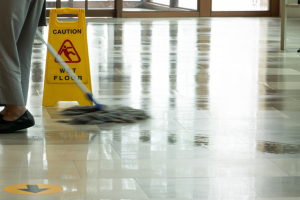Akbar Thomas Resources and Education

Maximizing Your Rights: Navigating Product Liability Laws in Tallahassee
Product Liability Basics: Understanding Your Rights as a Consumer
Consumer product purchases typically come with assorted expectations depending on what you have bought. Naturally, you expect the product to effectively serve the purpose for which it was bought, whether utilitarian, educational, entertaining, nourishing, medical or some other use. An implicit expectation is that a consumer product will not harm you if used properly for its intended purpose.
However, you might be surprised to learn that consumer product-related accidents injure millions of Americans every year. According to the Consumer Product Safety Commission, almost 12.7 million people sought emergency medical treatment for consumer product-related injuries. While the accident victims were likely at fault in many of these incidents, some products undoubtedly caused injuries due to defects and/or inadequate warnings about proper use.
The implicit expectation of product safety is backed by product liability laws, which make manufacturers, wholesalers, and retail stores responsible for injuries caused to consumers by defective or unsafe products. Product liability laws give consumers the right to seek compensation for injuries sustained by such products. This encourages all companies in the consumer product chain to ensure the safety of their products.
As experts in Florida’s product liability laws, the personal injury lawyers at Tallahassee-based Akbar Thomas Law advise anyone who believes a defective product may have caused injuries, illness, or death to seek legal advice. Read on to learn more about your rights as a consumer and the basics of Florida product liability law.
Types of Product Defects
Under Florida law, consumers can claim product liability for design, manufacturing, or marketing defects. Design defects occur when there is a fundamental flaw in how the product is created, making it inherently dangerous to the consumer. As implied by the name, manufacturing defects occur during product production. Marketing defects arise when the responsible party(ies) fail to warn consumers about potential product dangers or do not provide adequate instructions for its safe use.
Auto and auto parts manufacturers often face product liability claims for design defects and manufacturing mistakes. For example, some automakers have been successfully sued over design flaws relating to their vehicle’s center of gravity, which made them prone to rollovers. Successful manufacturing defect-based lawsuits have covered faulty airbags, brakes, steering systems, and numerous other parts.
The marketing defect-based product liability largely explains why so many products come with exhaustive instructions and why medications carry extensive details about dosing and possible side effects. Even with detailed instructions and warnings, companies can still face liability if plaintiffs can prove the information was deficient. This could include missing details, errors, poor placement within the packaging, or other factors limiting its effectiveness at preventing harm.
Legal Theories in Product Liability Cases
In pursuing a product liability lawsuit in Florida, plaintiffs must prove their case under legal negligence or strict liability theories. With a negligence claim, the plaintiff must prove that the product’s defect was connected to its design, manufacturing, improper testing, labeling, fraud, misrepresentation, or breach of warranty. Negligence claims are particularly effective if the plaintiff can demonstrate that a company was careless by:
- Failing to follow applicable state safety standards regulating the product.
- Failing to conduct adequate product testing.
- Failing to maintain diligent maintenance of machines and equipment used to manufacture the product.
- Breaching its warranty.
Under the strict liability legal theory, the plaintiff must prove that the product was unreasonably unsafe to the point that it never should have been brought to market. Strict liability cases focus on the dangers of the product itself rather than any negligence on the part of the manufacturers or supply chain.
Burden of Proof
To make a successful product liability claim in a Florida court, the onus is on the injured party to prove the merits of their case based on these four factors:
- The victim suffered injuries, damage to property, lost wages, or other economic losses.
- The alleged product that caused the injuries was flawed by design or manufacturing mistake or the company failed to provide adequate instructions and/or safety warnings.
- A definitive link showing how the product’s alleged defect caused the injuries and related losses.
- That the product was being used for its intended purpose according to any product instructions.
Common Scenarios in Product Liability Cases
No matter which type of product defect or under which legal theory, product liability cases follow similar trajectories that typically begin with a thorough investigation of the product and its alleged defect. Your lawyer uses this investigation to:
- Establish a distinct link between the product’s defect and your injuries.
- Determine how the defect arose.
- Identify liable parties.
- Collect supporting evidence.
- Determine whether the product has injured other people.
- Calculate fair damages for your claim.
When your lawyer has enough evidence, they will file the claim with the court. This often leads to pre-trial settlement negotiations, which could lead to an offer of just compensation. If not, your lawyer will prepare to argue your claim in the courtroom.
Seeking Legal Assistance
If you believe you have a valid defective product claim, you should seek legal expertise as soon as your health allows. Product liability cases are highly complex, and your lawyer needs time to build a case before the two-year statute of limitations expires.
Know that Florida law allows for comparative negligence, under which victims can make a defective product claim even if they contributed to the accident. Under comparative negligence, a defendant can still be found liable for a proportional share of claimed damages if the claimant can prove that a product defect contributed to their injury, illness, or death.
Learn More About Product Liability Claims—Contact Us Today!
With more than two decades of product liability practice in Tallahassee, Akbar Thomas Law’s personal injury legal team can help you secure just compensation for your defective product injuries. To learn more, contact us today at 850-383-0000 or start a conversation with our chatbot by clicking the “Live Chat” box.

